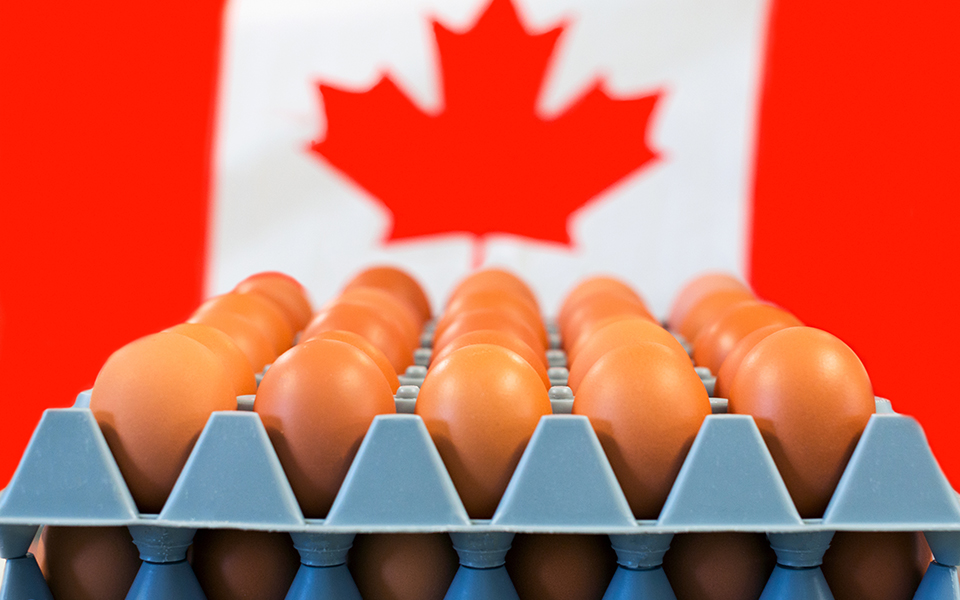Roger Pelissero in the Hill Times: “Supply management protects family farming”
By Egg Farmers of CanadaOur Chairman, Roger Pelissero, recently penned an op-ed in the Hill Times explaining the many benefits supply management offers Canadian consumers and family farms. Read it through and share it with your friends:
Supply management keeps ‘family farming’ alive in Canada
The stability of our industry is what makes it possible for our sons and daughters to take over the family farm. In other words, working under supply management is keeping our dairy, poultry, and eggs alive and rooted in the tradition of family farming.
By Roger Pelissero
Renegotiating NAFTA is not a simple task, and the potential effects of such an important trade agreement go far beyond what we hear in the news. While Canadian, American and Mexican farmers have commonly asked our governments to “do no harm” when it comes to our industry—a position that has since then been adopted by the U.S. Chamber of Commerce and many other organizations—it seems like the United States have decided to take another route.
The idea of phasing out of supply management over the next decade is preposterous and not just from the perspective of Canada’s national interest. The United Egg Producers, our counterparts south of the border, have sent a similar message to the U.S. trade commissioner. The U.S. currently enjoys an egg market trade surplus with Canada, they note, and “NAFTA is working well for U.S. agriculture.”
In Canada, the system of supply management makes it possible for consumers to have year-long access to fresh, local and high-quality Canadian eggs everywhere in the country. Our eggs are produced by more than 1,000 farm families in every province—and even in the Northwest Territories. This is compared to about 175 egg producing companies in the U.S., concentrated mainly in a few states, with an average flock size that is 75 times larger than an egg farm here in Canada.
The stability of our industry is what makes it possible for our sons and daughters to take over the family farm. In other words, working under supply management is keeping our dairy, poultry, and eggs alive and rooted in the tradition of family farming.
The advantages of the system go far beyond the farm. Canadians overwhelmingly support supply management. A solid majority of Canadians support the system. Nearly nine in ten agree or somewhat agree it is important that the eggs they purchase are produced in Canada, while almost all Canadians agree it is important that Canada is a food-producing nation, according to a Nanos Research survey in June 2017. Supply management protects and promotes these and much more.

There’s no wondering why Canadians support this made-in-Canada system. They see it working. And the very genius of the system is how remarkably resilient and effective it has been, ever since its inception in 1971.
We understand that Canada is a trading nation. In fact, Canada has successfully concluded many free trade agreements while maintaining supply management. Since 1989, Canada has negotiated a total of 14 trade agreements with 51 countries, while maintaining the supply management system. It is also important to know that every country in the world protects its agricultural industry for varying reasons. Supply management is a domestic policy tool used by Canada. Other countries like the EU and the United States choose other tools such as massive subsidies—the most recent U.S. Farm Bill is the biggest ever and went from $288 billion USD in 2008 to $478 billion USD in 2014.
Our farmers make a sizeable contribution to Canada’s food system, help keep rural communities vibrant and feed urban consumers’ appetite for locally produced food. Our goal is to produce only what the market requires by balancing Canada’s supply of eggs with the forecasted domestic demand for our products while taking into consideration our trade obligations. This helps prevent volatility and ensures Canadian farm-gate prices remain stable.
Canadian-made food belongs on our dining room tables, not the negotiating table. Canada must stand strong and ensure that future generations enjoy the incredible benefits of supply management.